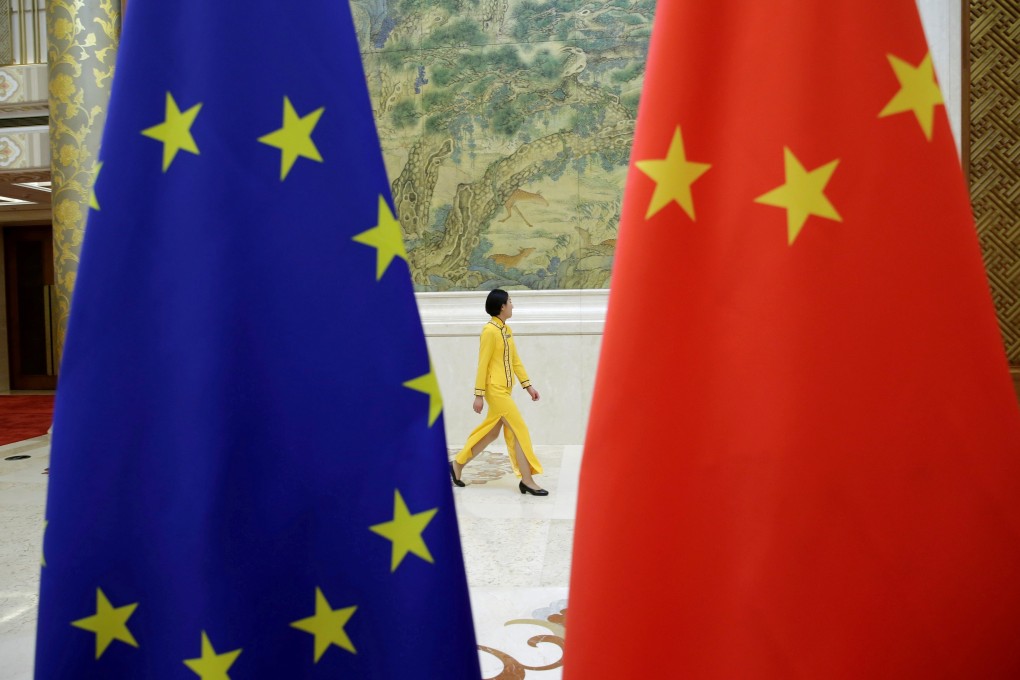Advertisement
Opinion | Why the EU-China investment deal exposes European weakness
- The agreement has shown the European Union, ravaged by the pandemic, to be the weaker economic and geopolitical actor. It must now hold China to its pledge to conform to International Labour Organization rules
Reading Time:3 minutes
Why you can trust SCMP
49

All agreements involving the European Union, a supranational entity comprising 27 member states, are bound to be complex and laborious. However, China managed to cut through the complexity and concluded an investment agreement with the EU in the last days of 2020.
Will the agreement, which follows the Regional Comprehensive Trade Agreement (RCEP) in Asia, lead to a stronger and more coherent EU-China relationship or a more fractious one?
Despite the deal, the European Commission has in the past referred to China as a “systemic rival”, suggesting that some degree of trade and other tensions with China are to be expected.
The United States has called China a “strategic competitor” in the past, and said it was in “strategic competition” with China in its Indo-Pacific security document released on June 1, 2019, weeks before the Asean summit in Bangkok.
Nevertheless, with Poland, Austria, Hungary and potentially Italy slowly swinging to the far right of the political spectrum, and Germany and France also hoping to have a good relationship with China, it does seem that China has key EU members on its side.

Advertisement
